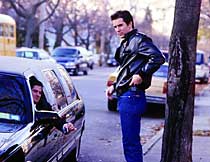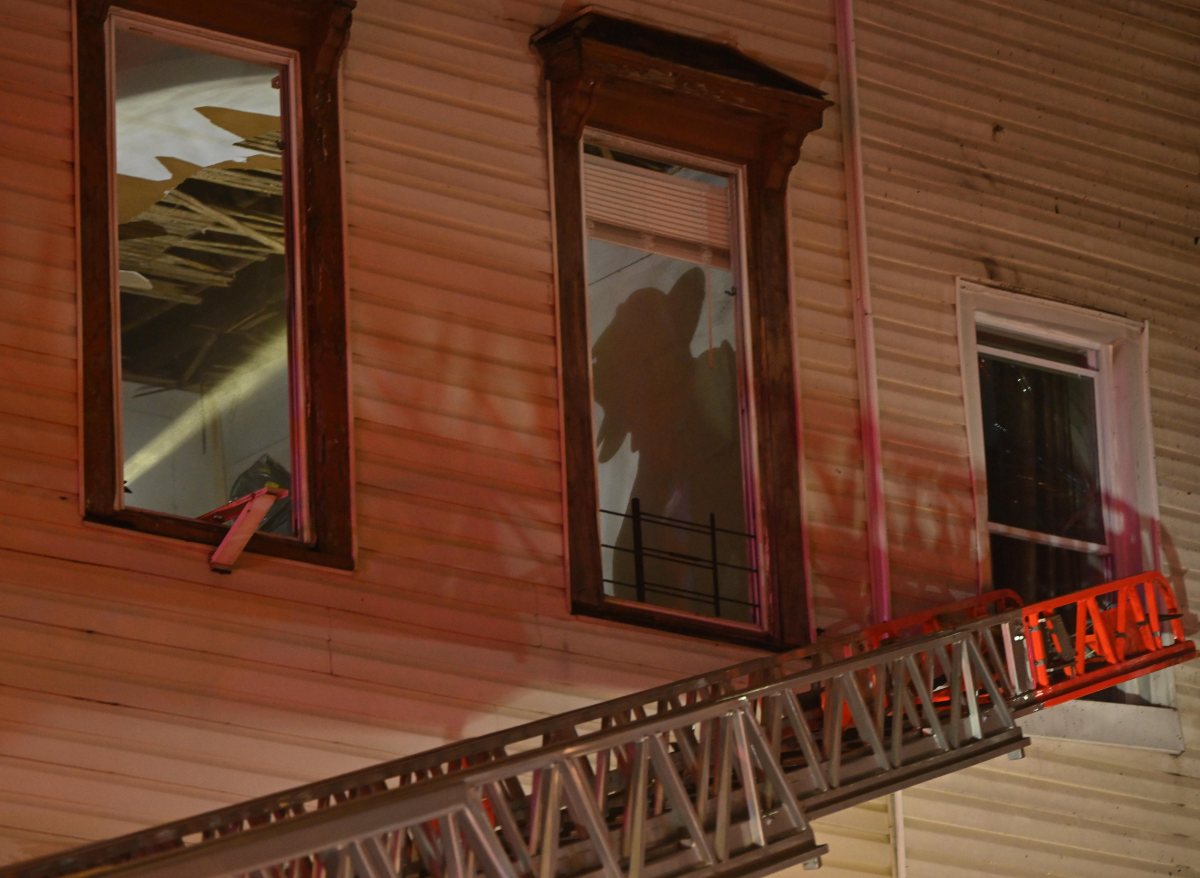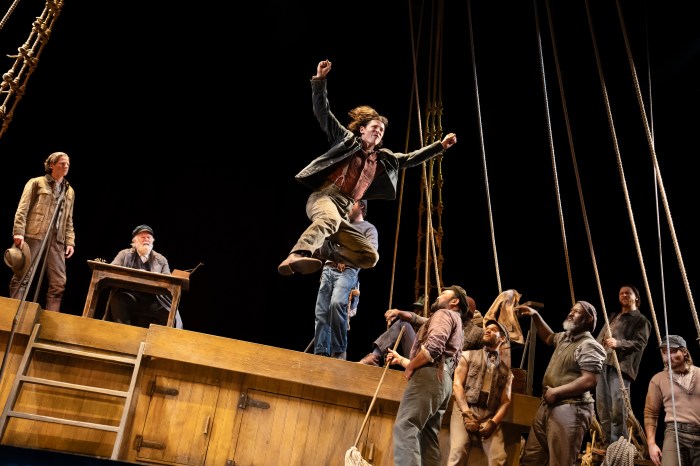Brooklyn is not Sundance," says Marco
Ursino, as if to reassure himself. .
Despite the impressive growth of the Brooklyn International Film
Festival, executive director Ursino doesn’t see it becoming a
market juggernaut or dominating its setting like the Sundance
Film Festival, which takes over tiny Park City, Utah, each year.
"We’re talking about Brooklyn here! Everything has already
been done. It’s a land of artists and big people," Ursino
tells GO Brooklyn.
Still, the festival, running April 28 through May 4 at the Brooklyn
Museum of Art, has gotten pretty big. It began in 1998 as the
Williamsburg Brooklyn Film Festival, a designation and location
it outgrew last year.
This year’s edition, which opens April 28 with a screening of
the Merchant and Ivory Film "Merci, Dr. Rey" – a zany
murder-mystery exploring the life of the closeted, gay son of
a narcissistic diva, starring Dianne Wiest and Vanessa Redgrave
– boasts 96 films in five categories: features, documentaries,
narrative shorts, and animated and experimental shorts. The schedule
is so packed that the Rose Cinemas at the Brooklyn Academy of
Music have been enlisted to catch some of the overflow.
The 96 were culled from 1,578 submissions – a leap up from fewer
than 1,000 last year.
"That is worrisome, a little bit," says Ursino, still
sounding quite happy. "With more films, it means more people
working, therefore a bigger investment, bigger commitment with
sponsors, more marketing. Every year it’s a little miracle.
"I guess we’re doing something right, because [sponsors]
who were with us the first year are still with us. We’re here
to stay for the long term. Just to ensure that, we always do
a nice, thorough job as far as our relationships with other organizations,
other entities and with people in general."
A prime example is Ursino’s stint on April 3 with the "Principal
for a Day" program. As part of his brief tenure, he treated
students at Middle School 143 in Bushwick to a couple of Brooklyn
International Film Festival (BIFF) selections. The Canadian animated
short "In the Back of the Bus" (2002) brought down
the house with its colorful gallery of bizarre bus passengers
grooving to a cappella and beat-box vocal music.
"These kids had the time of their lives," exults Ursino.
"They were dancing like crazy." The school’s award-winning
student chorus will perform before the 3 pm program on May 2,
which includes "Back of the Bus," and MS 143 students
will have a free day at the festival.
"It’s gonna be a show where it’s very vocal," observes
Ursino, clearly relishing the thought.
This isn’t the only way in which BIFF serves the local community.
Ursino points with particular pride to the list of 74 countries
that submitted films.
"There are over 190 ethnic groups living in Brooklyn. We
basically bring the best of their countries here. Brooklyn becomes
a theater where everybody can be really proud of their own origins,
ethnicity and arts."
That goes equally for folks who consider themselves Brooklynites
first and foremost. A handful of selections are either about
the borough, made here or made by filmmakers based here. But
Ursino says he and his colleagues didn’t go too far out of their
way to favor hometown product.
"Obviously, there is, on our side, a will to do that [But]
the program strongly represents the submissions, in percentage,"
says Orsino. "We’re starting now to have more films from
the U.S. in the program."
Director Harry O’Reilly’s debut "Crooked Lines" (2003;
screens May 4 at 7 pm) is in a long, crooked line of films about
the seedier side of the Borough of Kings: fast-talking con men,
small-time mobsters, neighborhood weirdoes and the eternal heist
gone bad.
In Latvian director Aleksandrs Petukhovs’ surreal epic "The
Last Soviet Movie" (2003; May 4 at 1 pm), a Brooklyn writer
traces his Russian ancestors’ adventures in the Revolution.
Williamsburg-based Ari Taub’s "Letters from the Dead"
(2003; May 3 at 5 p.m.) goes just as far afield while staying
simultaneously close to home. While it was shot in the United
States, including on some interior sets in Brooklyn, the movie’s
ostensible setting is World War II-era Northern Italy. European
actors were flown here to play the German and Italian soldiers
who populate this, "perhaps the lowest budget war film ever
made," according to the festival program.
Just as unlikely, arguably, is the documentary "Brooklyn
Stories" (2002; April 29 at 5 pm), which showcases the recollections
of old-time Dodgers fans. Nostalgia for the borough’s lost team
is nothing new but the movie is Dutch, made by the Amsterdam-based
Jos de Putter.
Ursino laughs at the incongruity, but says that Dutch filmmakers
seem to have an affinity for portraits of "ordinary America."
"This is not the first time they’ve surprised me They come
here, and they see it in a certain way," he says. "There
is a sensitivity, I guess."
But, Ursino goes on to observe that the birthplace of the Dodgers
means "America" across the globe.
"Everywhere in the world, people know a couple of things:
Coca-Cola and Brooklyn. When I lived in Torino, Italy, I knew
of New York and Brooklyn. I didn’t know Manhattan, Staten Island.
I didn’t know there were boroughs.
"It’s a great brand."
The Brooklyn International Film Festival
2003 will run April 28 through May 4 at the Brooklyn Museum of
Art (200 Eastern Parkway at Washington Avenue). Additional screenings
on April 30 will be at BAM Rose Cinemas (30 Lafayette Ave. at
Ashland Place).
Individual tickets are $10 for evening programs and $8 for afternoon
programs; a full festival pass is $100; various other options
are available. For more information on ticket prices and purchases,
the films or complete schedule, log on to www.wbff.org.



















